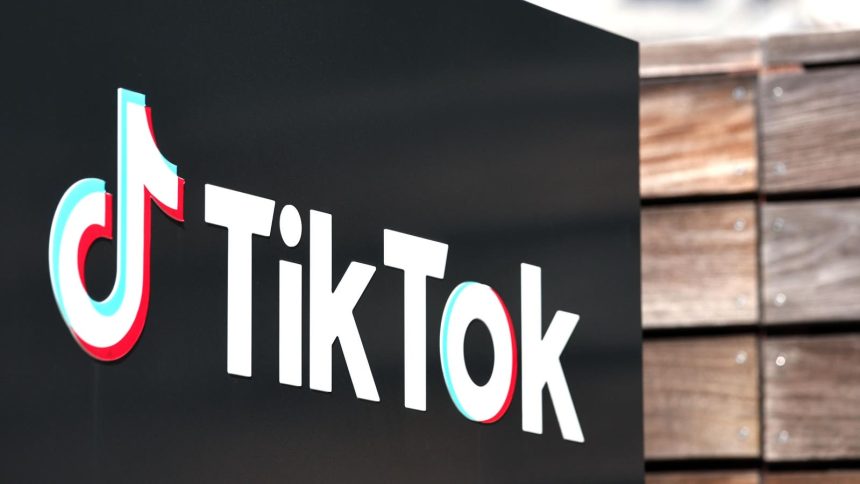TikTok’s legal battle against a potential U.S. ban took a new turn on Monday, November 27, 2024, as the company filed an emergency motion with the U.S. Court of Appeals for the D.C. Circuit. The motion requests an injunction to temporarily halt the court’s recent ruling upholding a federal law that could lead to the app’s removal from U.S. app stores. This law mandates that TikTok’s Chinese parent company, ByteDance, divest its ownership stake in the app or face a ban. TikTok’s primary argument for the injunction is to allow time for a potential appeal to the Supreme Court. The company contends that the Supreme Court should have the opportunity to review this “exceptionally important case” before the ban takes effect, given its significant implications for free speech and national security.
Adding another layer of complexity to the situation, TikTok’s filing also points to the incoming Trump administration. The company argues that a pause on the ruling would allow President-elect Donald Trump’s administration time to review the legal dispute and potentially take action that could render the case moot. Speculation abounds that Trump intends to block the ban, though the legal mechanisms for doing so remain unclear. TikTok suggests that Trump’s potential intervention presents a “reasonable possibility” of pausing enforcement or mitigating the law’s impact, even in the absence of a clear legal pathway. This introduces uncertainty into the legal proceedings and raises questions about the future of the app in the U.S. market.
Central to TikTok’s plea is the argument that enforcing the ban while the case is under appeal would cause “extreme and irreparable harm” to the company and its vast user base. TikTok highlights its 170 million monthly active users in the U.S., positioning itself as a vital platform for speech and creative expression. The company argues that a ban, even temporarily, would sever ties with this substantial user base, cripple its ability to attract advertisers, and negatively impact talent acquisition and retention. This emphasizes the economic and social ramifications of the ban beyond its immediate legal implications.
TikTok’s preferred course of action is to avoid an emergency appeal to the Supreme Court. The company argues that a hasty decision from the high court is not ideal and that a pause by the appeals court would facilitate a “more deliberate and orderly process.” TikTok contends that the Supreme Court is better positioned to address the complex issues at hand after careful consideration rather than through an expedited emergency ruling. This strategy underscores TikTok’s desire for a comprehensive review of the case and its implications.
The deadline TikTok has requested for the appeals court to rule on its injunction request is December 16, 2024. This date adds urgency to the situation and sets the stage for potential further legal action if the injunction is denied. TikTok’s filing emphasizes the need for a “modest delay” in enforcing the Act to allow for Supreme Court review and the incoming administration’s evaluation, highlighting the potential for the incoming administration to influence the outcome. This underscores the interwoven nature of the legal, political, and economic aspects of the case.
While TikTok suggests Trump could intervene to prevent the ban and obviate the need for Supreme Court involvement, the feasibility of such intervention remains uncertain. While Trump could declare a non-enforcement policy, legal experts have noted that considerable pressure would likely remain on app stores like Apple and Google to comply with the law. The unpredictable nature of the Trump administration could further complicate matters, as companies might hesitate to assume a consistent non-enforcement stance. One potential avenue, as suggested by some legal experts, involves Trump declaring TikTok compliant with the law, regardless of ByteDance’s divestment status. However, this approach is not without risk, as competitors could challenge such a declaration in court. Another, less likely scenario, would involve Trump pressuring Congress to repeal the law, a difficult prospect given the bipartisan support for restricting the app.
The TikTok ban, enacted in April 2024, stems from long-standing concerns about the app’s Chinese ownership and potential national security risks. The lawsuit filed by TikTok and its creators asserts that the ban violates First Amendment rights, while the government maintains its necessity for national security. Despite TikTok’s denials of wrongdoing or ties to the Chinese government, reports have surfaced regarding various concerns, including alleged spying on journalists, tracking sensitive words, promoting Chinese propaganda, and mishandling user data. The appeals court upheld the ban based on these concerns, concluding that the law represents the least restrictive means of addressing the perceived risks while allowing TikTok to operate if ByteDance divests. The court also ruled that the law doesn’t infringe on First Amendment rights, focusing on foreign control rather than content censorship. Public opinion on the ban is divided, with a declining percentage of U.S. adults supporting a ban, highlighting the evolving public perception of the app and its associated risks.



